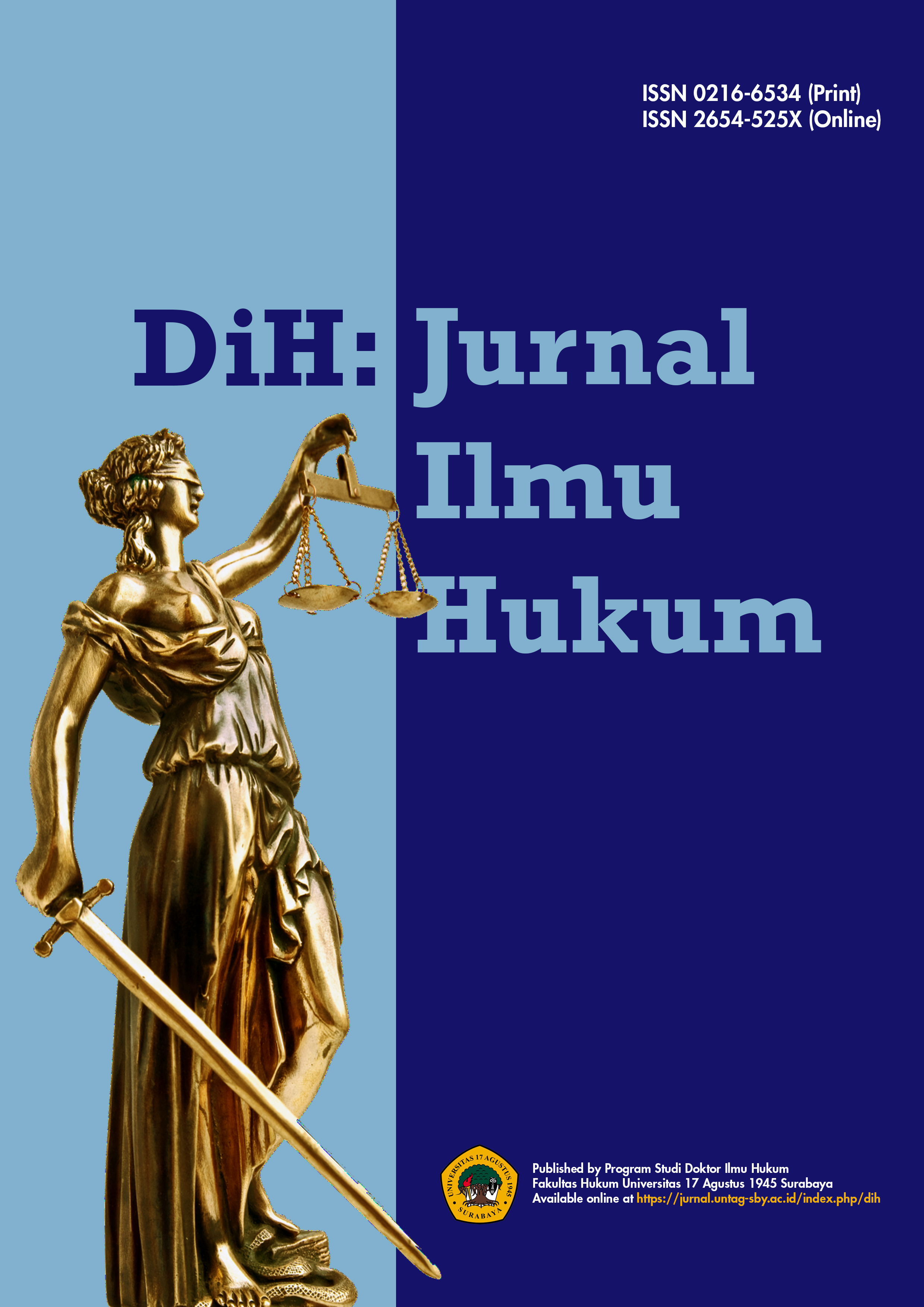Reframing Prosecutorial Legitimacy: Embracing Restorative Justice in Criminal Case Discontinuation
DOI:
https://doi.org/10.30996/dih.v20i2.10803Keywords:
Prosecutor, Termination of Prosecution, Restorative JusticeAbstract
This research aims to find out and understand the scope of the Prosecutor's office, especially in the field of prosecution in the criminal justice system, as explained in this journal, namely regarding regulations related to the authority of the Prosecutor in implementing the termination of prosecution for criminal cases based on the principle of restorative justice and regarding obstacles to the implementation of restorative principles. justice at the prosecution stage. This research was carried out using a statutory regulatory approach and a conceptual approach using library data, namely normative juridical, which was carried out by examining library materials or secondary materials that were collected and analyzed qualitatively. The authority of the Prosecutor's Office in implementing the Termination of Prosecution is strictly regulated in the Republic of Indonesia Prosecutor's Regulation Number 15 of 2020 concerning Termination of Prosecution based on Restorative justice and is supplemented by the Circular Letter of the Deputy Attorney General for General Crimes Number 01/E/EJP/02/2022 dated 10 February 2022 and in its implementation Restorative justice is considered capable of being a solution in resolving cases quickly with the main principle of prioritizing participation between victims, perpetrators and the community as well as restoration of a situation. Furthermore, in implementing the termination of prosecution of a case, it is not impossible that there are obstacles that must be faced by the Prosecutor as Public Prosecutor, especially in reconciling the interests of the victim and the perpetrator in achieving peace.
Downloads
Downloads
Published
Issue
Section
License
Authors who publish with DiH: Jurnal Ilmu Hukum agree to the following terms:
- Authors transfer the copyright and grant the journal right of first publication with the work simultaneously licensed under a CC BY-SA 4.0 that allows others to share the work with an acknowledgement of the work's authorship and initial publication in this journal.
- Authors are able to enter into separate, additional contractual arrangements for the non-exclusive distribution of the journal's published version of the work (e.g., post it to an institutional repository or publish it in a book), with an acknowledgement of its initial publication in this journal.
- Authors are permitted and encouraged to post their work online (e.g., in institutional repositories or on their website) prior to and during the submission process, as it can lead to productive exchanges, as well as earlier and greater citation of published work (See The Effect of Open Access)










